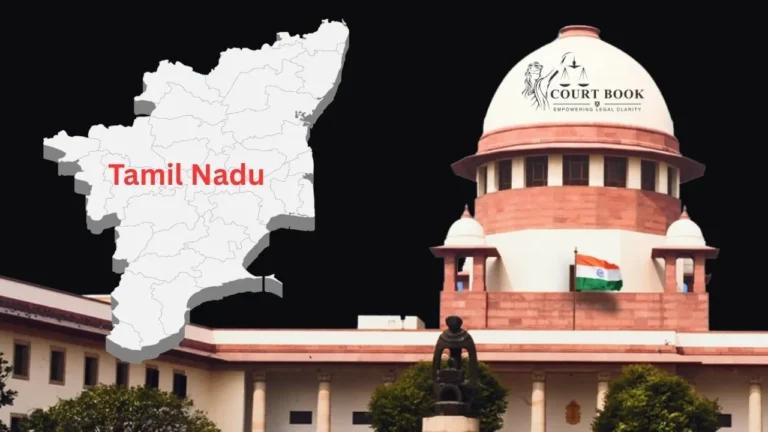The Tamil Nadu government has moved the Supreme Court against the Madras High Court's interim stay on its recent amendment removing the governor's power to appoint vice-chancellors (VCs) in state-run universities.
The amendment came after the Supreme Court's own judgment, clarifying the constitutional limits of the governor's powers in state affairs. Based on this, Tamil Nadu had amended several university laws to transfer vice-chancellor appointment powers to the state government.
Read also: Supreme Court: Divorced Wife Entitled to Maintenance Reflecting Her Marital Standard of Living
However, the high court stayed the amendment, leading the state to move the Supreme Court.
The Tamil Nadu government argued that the “stay order violates the Supreme Court’s decision in Health for Millions vs Union of India, which cautioned against passing interim orders in cases challenging constitutional validity.”
The state government pointed out several legal and procedural flaws in the High Court’s interim order:
The writ petition was filed without any urgency during the court’s vacations. Despite this, it was allegedly raised in violation of Notification No. 85/2025 issued by the High Court, which limits vacation hearings to “very urgent cases”.
The petition was allegedly filed by a lawyer associated with a political party.
Read also: Supreme Court of India Dismisses Next Radio’s Petition Against Copyright Rule 29(4)
The state was not given an opportunity to file its counter affidavit before the interim stay was granted.
Even though a transfer petition was filed before the Supreme Court, and Chief Justice of India B.R. Gavai said that it should be brought to the notice of the High Court, the High Court passed the stay order.
Background of the controversy:
Initially, the Governor withheld his assent to 10 state Bills, sending only two to the President. These included key amendment Bills relating to university laws such as:
- The Tamil Nadu University Laws (Amendment) Bill, 2022
- The Tamil Nadu Dr. M.G.R. Medical University (Amendment) Bill, 2022
- The Tamil Nadu Fisheries University (Amendment) Bill, 2023…and many others.
Read also: Law student Sharmistha Panoli sent to 14 days judicial custody over controversial video on Operation
Even after these Bills were re-enacted and passed by the Tamil Nadu Legislative Assembly, the Governor referred them back to the President, allegedly in violation of Article 200 of the Constitution.
However, in the case of State of Tamil Nadu v. Governor of Tamil Nadu, the Supreme Court held that:
“Once the Bills are re-passed by the State Legislature, they are deemed to have received the assent of the Governor.”
Subsequently, the Tamil Nadu government issued Notification Nos. 167 and 169 dated 11.04.2025, thereby notifying all the 10 Acts.
These include:
- Act No. 14, 2025 to Act No. 22, 2025, which includes amendments to various universities like Dr. Ambedkar Law University, M.G.R. Medical University, Fisheries University and others.
An advocate challenged Notification No. 167, which covered 9 out of the 10 Acts. A vacation bench of Justices G.R. Swaminathan and V. Lakshminarayanan passed the interim stay order on the ground that the transfer of vice-chancellor appointment powers from the Governor to the State requires judicial scrutiny.
Read also: Judges accepting government posts after retirement raises questions about public confidence: CJI Gavai
The state government has now approached the Supreme Court to revoke this stay, arguing that:
“The High Court order was passed in haste and violates established constitutional and judicial norms.”
The matter is now pending before the Supreme Court, with the state seeking restoration of its legislative authority and immediate lifting of the High Court stay.















